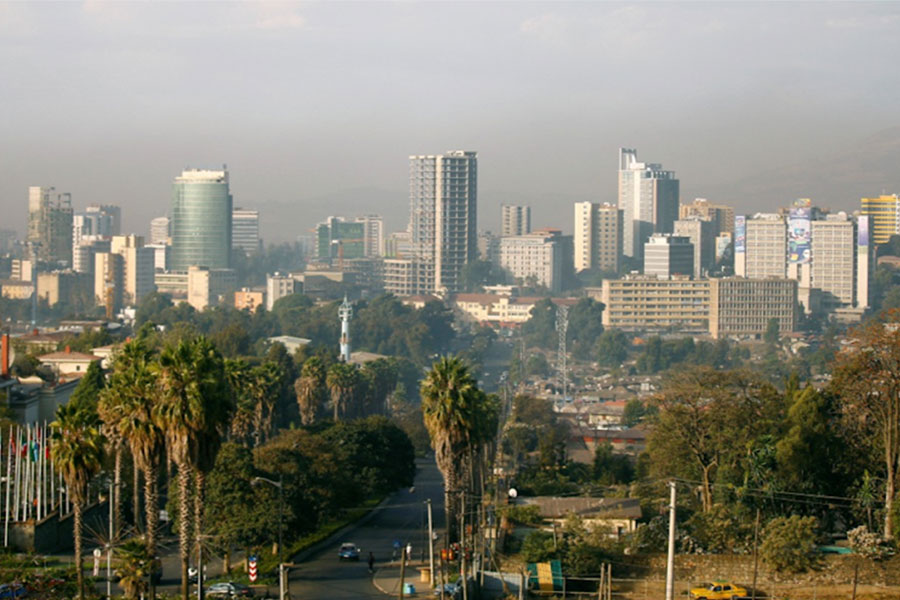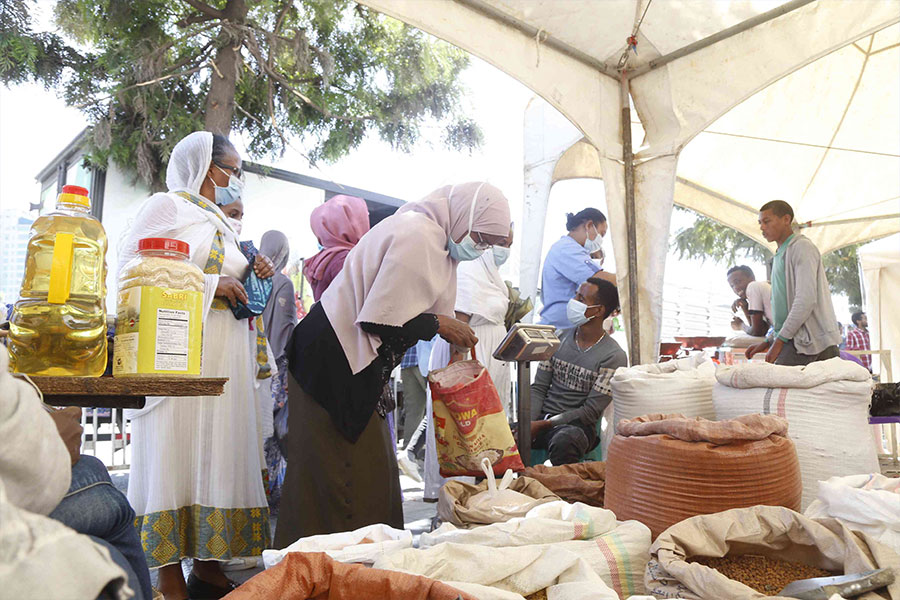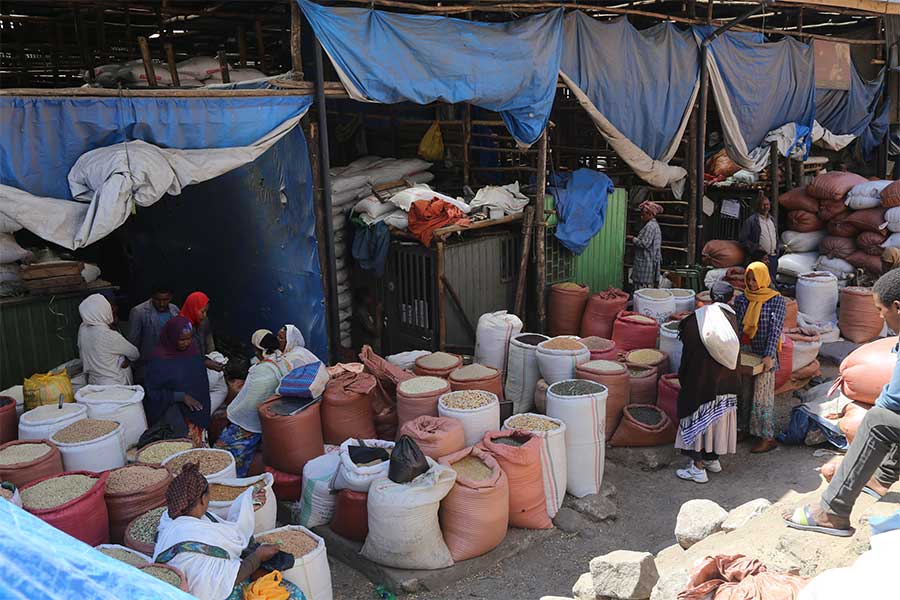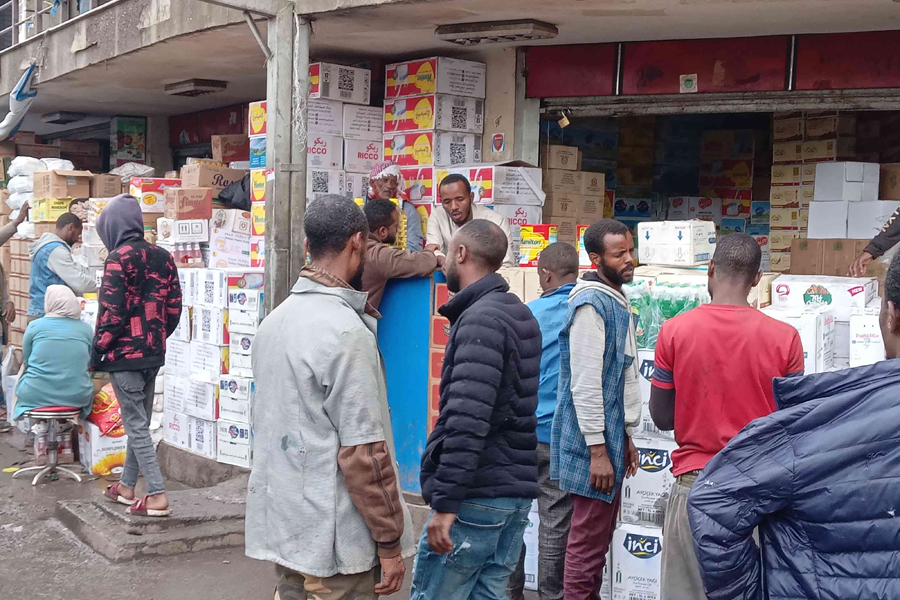
Radar | Apr 13,2025
Oct 8 , 2022
By Million F. Wondmagegnehu
The global inflation due to COVID-19-induced lockdowns, the war between Russia and Ukraine and the unexpected rise in fuel prices, edible oil and fertilizers are sending shockwaves across the economies of many nations worldwide.
It could not know to what extent they record the best results, but governments have been implementing various measures to avert the influence of inflation. It is obvious that during such kinds of galloping inflation, which is very thorny to predict, the most affected portion of the population will be the vast majority of the poor, living in both developed and under-developed countries. It is no surprise that the multitude of global effects have worsened economic crises worldwide and have seriously exacerbated the plights of people living in poor regions such as Sub-Saharan Africa.
Various reports and anecdotal experiences are witnesses to escalating prices on essential commodities such as food, energy and medicines, which are a matter of life and death for most. The global situation is a scene of tragedy.
The economies of low-income countries in Africa and Asia, which have large chunks of their economy running with the help of international aid, are struggling in the face of economic failure, or worse, state failure. Several projects designed and implemented to improve the lives of citizens living in extreme poverty fail to achieve their goals. The funding invested in such projects ate by inflation, and the lives of the more significant portion of low-income households are being affected more than ever.
In the case of Ethiopia, the Productive Safety Net Program (PSNP) could be a typical example revealing the more significant challenge at hand. Inflationary pressure is exerting terrible consequences on the living conditions of the beneficiaries.
The PSNP is one of the food security programs in the country formulated in collaboration with the Word Bank to support food-insecure households by transferring cash and food items during shocks such as drought and other natural hazards. It launched in 2005. PSNP has become Ethiopia's principal food security strategy designed to benefit five million chronically food insecure people in targeted communities. The project has been through several challenges, such as, to name a few, availing essential services and allocating sufficient money for individual beneficiaries and the absence of clear budget distribution guidelines.
Nevertheless, presently it is gravely affected by the ever-increasing inflation. Headline inflation has been in the 30pc to 40pc range for over a year, while food inflation has edged above 40pc several times. The budget allocation for individual beneficiaries is not keeping pace, paying below half a thousand Birr, which is no longer sufficient to cover the basic expenses for meals and other necessities such as rent and clothing. With a sticky policy to revise, low-income households under the program are in a harsh situation.
Government agencies and donors working on the issue of social protection and PSNP should consider alternatives to better support the beneficiaries. It can start by improving resource mobilization efforts by sectoral and regional bureaus, mobilizing volunteers to provide psychosocial support for the elderly and incentivizing community-based organizations such as Idris to contribute their efforts to support the beneficiaries. Designing and implementing guidelines that facilitate the service of PSNP by previously uninvolved parties can be one way to go. The implementation of PSNP requires an enhanced food security strategy and more predictable transfers that adjusts periodically for inflation. Otherwise, it could be an exercise in futility.
PUBLISHED ON
Oct 08,2022 [ VOL
23 , NO
1171]


Radar | Apr 13,2025

Fortune News | Nov 24,2024

Agenda | Jun 25,2022

Commentaries | Sep 10,2021

Fortune News | Oct 14,2023

My Opinion | Nov 25,2023

Fortune News | Jul 18,2020

Agenda | Dec 28,2019

Fortune News | Dec 01,2024

Fortune News | Aug 04,2024

Photo Gallery | 178553 Views | May 06,2019

Photo Gallery | 168747 Views | Apr 26,2019

Photo Gallery | 159571 Views | Oct 06,2021

My Opinion | 137083 Views | Aug 14,2021
Commentaries | Oct 25,2025

Dec 22 , 2024 . By TIZITA SHEWAFERAW
Charged with transforming colossal state-owned enterprises into modern and competitiv...

Aug 18 , 2024 . By AKSAH ITALO
Although predictable Yonas Zerihun's job in the ride-hailing service is not immune to...

Jul 28 , 2024 . By TIZITA SHEWAFERAW
Unhabitual, perhaps too many, Samuel Gebreyohannes, 38, used to occasionally enjoy a couple of beers at breakfast. However, he recently swit...

Jul 13 , 2024 . By AKSAH ITALO
Investors who rely on tractors, trucks, and field vehicles for commuting, transporting commodities, and f...

Oct 25 , 2025
The regulatory machinery is on overdrive. In only two years, no fewer than 35 new pro...

Oct 18 , 2025
The political establishment, notably the ruling party and its top brass, has become p...

Oct 11 , 2025
Ladislas Farago, a roving Associated Press (AP) correspondent, arrived in Ethiopia in...

Oct 4 , 2025
Eyob Tekalegn (PhD) had been in the Governor's chair for only weeks when, on Septembe...

Oct 25 , 2025 . By YITBAREK GETACHEW
Officials of the Addis Abeba's Education Bureau have embarked on an ambitious experim...

Oct 26 , 2025 . By YITBAREK GETACHEW
The federal government is making a landmark shift in its investment incentive regime...

Oct 29 , 2025 . By NAHOM AYELE
The National Bank of Ethiopia (NBE) is preparing to issue a directive that will funda...

Oct 26 , 2025 . By SURAFEL MULUGETA
A community of booksellers shadowing the Ethiopian National Theatre has been jolted b...